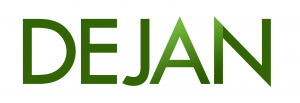
Penguin 2.0 did many great things for the quality of Google’s search results, but one of them went largely unnoticed by the mainstream SEO community. Since the last update I was approached by several people who have noticed a new layer of protection against spam entering Google’s results quickly.
In short, it’s difficult or nearly impossible to quickly inject a new domain into Google’s results through ‘traditional’ blackhat techniques. Pushing something that already ranks can be done, but entering with a new site and using purely manipulative techniques apparently doesn’t work.
I decided to test out my pet hate, expired domain redirects.
We used a newly registered domain and set up 301 redirects from 80 expired domains with healthy link profile, often in the range of PageRank 5. The experiment was set up in June this year and produced no visible impact in terms of performance of the test website. If this was 2010, that site would have shot straight to the first page of results.
In the second stage of the experiment we removed all 301 redirects and set up one page sites from each (formerly) expired domain. No impact.
All redirects and links are visible in Google Webmaster Tools and some random traffic can be seen, perhaps on par with a newly registered domain with no links (or token links from domain information websites).
My verdict? Spamming your way into search results quickly is now much more difficult than before.
Google 1 : Spammers 0
Dan Petrovic, the managing director of DEJAN, is Australia’s best-known name in the field of search engine optimisation. Dan is a web author, innovator and a highly regarded search industry event speaker.
ORCID iD: https://orcid.org/0000-0002-6886-3211

Hey Dan,
It may depend on the niche. I got my own personal test site to rank #1 for SEO in my own city, using only black hat techniques (started the site in mid June). It is even crawling it’s way up for SEO phrases on a state level.
My technique was a little simpler. Get a domain (didn’t have any PageRank to begin with). Built one page with decent optimized content. Signed up with a link building service for one month, and that was it. Granted there aren’t thousands of searches a month for the keywords I targeted, it is still a competitive niche since I am going up against websites that specialize in SEO, been around for years, have page authority between 2-4, and have legit links. Had I went for a more broad search term, I may not have had the same results.
All the links that were built were on crappy unrelated articles/websites, with optimized anchor text. I’m not proud of how it got to the top, but I had to test black hat methods for myself. I am patiently waiting for a manual penalty from Google, but in the meantime things are going well. It will be interesting if I get a penalty out of the blue, or if at some point I decide to start a second campaign and reach Penguin’s threshold for the amount of spammy links one website can have.
My last sentence brings me to a question that just popped into my head (lol). Do you think that there is a threshold for the amount of spammy links a site can have, in relation to the amount links of competing websites, before a manual penalty is given out? For example, would a website trying to rank on a national scale for “stereo speakers” be allowed more room to build crappy links, than say one that was trying to rank for “Kansas City Funeral Home”. I could see this being the case, that since it would take more links to start to rank for “stereo speakers”, if your website is dwelling in the bottom of the SERPs with crappy links, Google may let it slide since you aren’t creating too much of a fuss. However, if you get the top position for “Kansas City Funeral Homes” with a fraction of the spammy links, Google would take action since your website would be in the spotlight.
I don’t know. I am just rambling thoughts about SEO.
In english google the filters are different – of course depends of the niche – but mainly to rank in .uk .au .com .ca new domain with pure spam in short time is almost impossible now
Good point.
Dan, I don’t want to be “that guy” in the comments, but your verdict is not congruent with what i’ve found. Personally I have many many sites ranking well using blackhat techniques and all Penguin and Panda have proved to me is that it is has never been easier to rank sites on fresh domains.
A fresh domain has a clean record and using Blackhat techniques you can catapult it to the top very quickly. Why do you think so many legitimate authority sites are kicking and screaming about new sites with few links ranking?
I really can’t disagree with this blog post enough, I can give you many examples of the worst sites ranking top 10 using blackhat tehcniques which would never have worked as well two years ago.
Very good point mate. I think “Spamming” will be obsolete in coming years. What do you think?
I feel this is perhaps niche dependent, Some niche’s you can get a website on page 1 with little effort and a few ordinary links, knocking far more respectable sites, with better link profiles out of the way with ease.